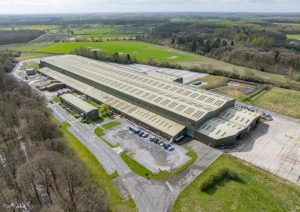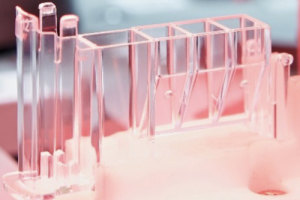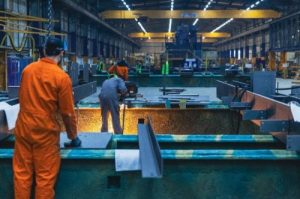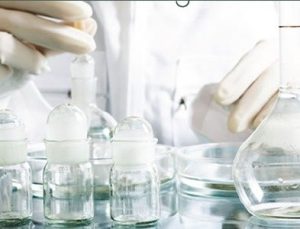The scientific entrepreneur with ambitions to create ‘the Ryanair of lab space’
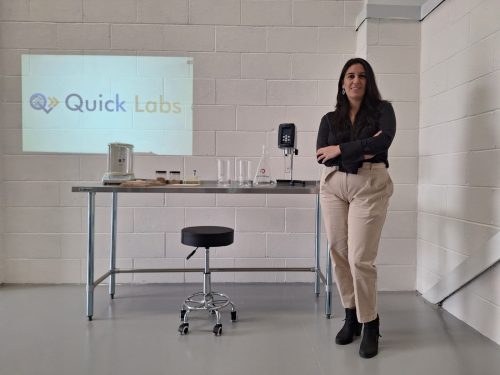
“Things have really started to happen since the start of the summer”, she said, pleased but with a mix of what-took-you-so-long impatience.
Now the flurry of invitations and interest from angel investors, industrial partners and wealth managers has made Victoria Garcia one of the most in-demand emerging entrepreneurs in Yorkshire.
And for good reason. She is a Royal Society of Chemistry Changemaker with a patented product and an infectious confidence who is in a hurry to make things happen with her companies, BindEthics and Quick Labs.
In a world of media-trained interviewees briefed to talk cautiously about hoped-for incremental progress, it is both refreshing and slightly dizzying for someone to openly declare they have pocket aces.
Ace 1: Manufacture a glue that would be the first 100% waste-derived bio-adhesive for the engineered wood sector, “drawing foreign purchasing power to the UK and accelerating economic growth”. The plan for BindEthics is to go from pre-revenue to exit in four years.
Ace 2: “What Ryanair did with the aviation industry, I’m going to do with lab space”. Quick Labs will launch in Leeds this month, but the ambition already stretches across Europe.
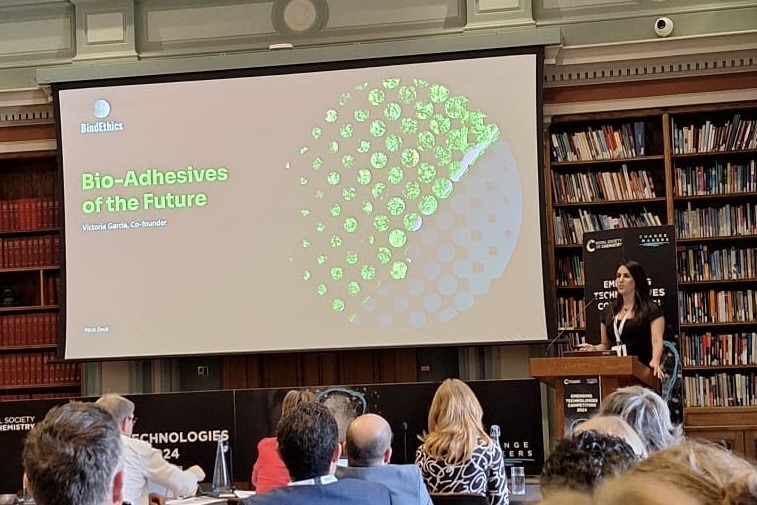
Victoria Garcia presenting at the Royal Society of Chemistry
Garcia grew up near León in northern Spain, before moving to do her undergraduate degree in Ireland and her Masters in the Netherlands. She then came to the UK, working in Kent, Bristol and London before heading to Leeds on what she describes as “a hunch”.
The idea for BindEthics had come while working down south, talking to a colleague about “the massive gap for bio-adhesives”.
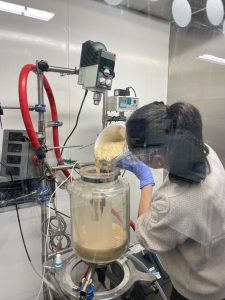
Victoria, the scientist, in the BindEthics lab
Engineered wood has a problem that the glue used prevents it being recycled. Last year Ikea acknowledged 5% of the climate footprint of its total value chain is connected to the use of glue in board materials.
“There is a need, there is a gap,” said Garcia. “I came up with the idea of using food waste, we did it and it worked. Then I needed to scale it up.
“For a lab, I needed a grant. For a grant, I needed a company.” So BindEthics was born.
She added: “I was still a scientist then, the business woman within was born recently.”
Garcia and BindEthics recently secured a Smart Grant from Innovate UK (Garcia is playfully disappointed when the initial response to this wasn’t one of amazement. For the uninitiated, this is a hugely-competitive process and success provides “bragging rights forever”, she said.).
Securing the £350,000 grant means the plans to bootstrap can be accelerated, although Garcia must match it with £150,000, which is half-secured.

Garcia pitching to potential angel investors in York earlier this week
“Getting investment is painful,” she said. “I think the problem is that it puts you in a situation where you feel your worth only depends on another person’s validation: ‘I won’t be able to make my dreams come true unless this other person allows me to.’”
She is confident of securing the rest of the funding and the research will be successful, then the path forward is clear in her mind.
“We will start industrial trials and then get it to market, get agreements with manufacturers and then exit,” she said.
“We will always keep researching, but I don’t want to have a manufacturing company, I want to do R&D. We want to exit by 2028.”
BindEthics’ bio-adhesive potential is predicated on three factors: legislation, customer demand and sustainability goals.
Garcia said: “We now have a patented product that is ready to hit the market. We need the industrial validation.
“The product I have created has massive value and I have to get the manufacturers bidding for the chance to test my glue. They need me. It has to be that way round.”
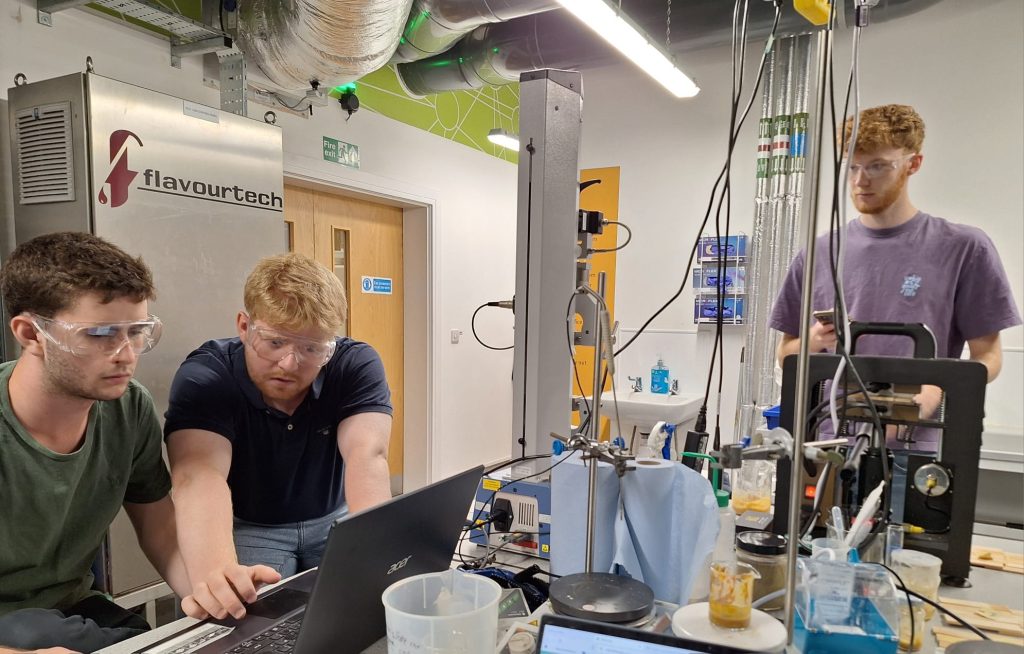
Developing the BindEthics bio-adhesive
Working as a scientist-founder helped her to identify a second opportunity with huge potential: providing affordable lab space in the regions. Her second business, Quick Labs, plans to change that.
“Every single founder in this space knows there is a massive shortage of lab space in the UK, the Government knows it, the Royal Society of Chemistry knows it,” she said.
“If we are to find new technology to replace fossil fuels, it needs to happen in the laboratory. This impairs society. The people that are really affected by this are the people who want to develop new technologies.
“Available lab space helps everyone, from founders to the economic growth of the country. It’s a no brainer.
“If you want to attract investors you have to have companies first. If you have labs, you will have companies then you will have investors, and that will help the economy of the North.”
The first Quick Labs is being fitted out on the edge of Leeds city centre and will be ready this month. It will be used by BindEthics and up to 20 SMEs, acting as a proof of concept for her belief that providing space for scientists can be done profitably.
Assuming that happens – and Garcia is in no doubt that it will – expansion will quickly follow.
“My plan is to have a Quick Labs in every city in the UK,” she declared. “I want scientists that have great ideas to give them a go, knowing that I am giving them the platform to succeed.”
And is there an exit date in mind for Quick Labs?
“I don’t have a deadline for this one because I don’t see when it could stop.”

